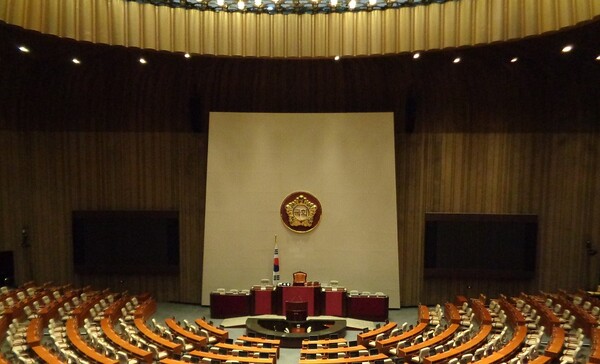Ruling and opposition parties make a dramatic agreement on the 2023 budget bill, Article 638.7

On December 24th, 2022, the ruling and opposition parties finally passed the first budget bill of the Yoon Seok-Yeol administration in a dramatic sense, with 251 votes in favor, four against, and 18 abstentions.
The budget bill agreed upon by the ruling and opposition parties at the National Assembly is 638.7 trillion won, which was reduced by 300 billion won from the original bill submitted by the government.
Right after the budget bill was passed, Prime Minister Han Deok-soo said, 'The government will carry out the first budget bill of the new government approved by the National Assembly today with a great sense of responsibility.
We will exert all our efforts to overcome complex crises such as high inflation, high-interest rates, and slow growth, and do our best to protect the ordinary people and the weak.'
As the ruling and opposition parties dramatically agreed on handling next year’s budget bill, an unprecedented “quasi-budget” situation was avoided.
A quasi-budget is a temporary budget created ifa budget bill does not pass the National Assembly by January 1st.
If a quasi-budget is made, the government can only implement the budget for ongoing projects from the past not new projects, resulting in many disruptions to the nation’s operations.
The Democratic Party of Korea and the People Power Party (PPP) have taken a step back from each other and agreed to a budget for next year, both being conscious of a serious political blow that will return to everyone should the budget agreement be delayed any longer.
The minority party, PPP, could no longer delay the passage of the first budget of Yoon SeokYeol’s government in the face of rising concerns about the recession next year.
The Democratic Party of Korea had to overcome criticism that a majority opposition party was holding down the government’s ruling party.
In a situation where the world economy was difficult to deal with, it was very inspiring that the ruling party and the opposition passed the 2023 budget.
However, the budget was 22 days late, and it will be hard to shake off criticism that this became the tardiest budget passed since the implementation of the 2014 National Assembly Advancement Act.
The ruling and opposition parties peaked on the issues of the reduction of corporate tax rates, the moratorium on the imposition of financial investment income tax, and the establishment of the Personnel Information Management Bureau.
When the government asked to reduce corporate tax rates from 25% to 22%, the opposition defined this as a “tax cut for the rich”; they also opposed the moratorium on the imposition of financial investment income taxes for the same reason.
The opposition also argued that creating the Personnel Information Management Bureau would let the Ministry of Justice take total control of personnel affairs, violating the law.
However, the PPP disputed that Korea’s corporate tax rate of 25% is high compared to the OECD’s average of 21.48%.
The PPP argued that lowering the corporate tax rate to 22% would attract foreign companies’ investments in Korea; thus Korean companies would also have competition with foreign companies.
Also, the PPP said that it is necessary to defer financial investment income tax until 2025 because the stock market could be depressed.
They also argued that having a Personnel Information Management Bureau in the Ministry of Justice would be the best way to resolve legal issues during the personnel verification process.
In the end, the ruling and opposition parties agreed to lower the corporate tax rate by 1%, delay the financial investment income tax for two years, and cut the budget for the Personnel Information Management Bureau by 50%.
The National Assembly is the representative body of the people and the highest legislative body.
Therefore, despite the need for an exemplary attitude to abide by the Constitution and laws by taking the lead from the National Assembly, the current situation in which the National Assembly violates its laws every year shows Korea’s underdeveloped political level.

- SeokJun Kim / Grade 11
- Woodberry Forest School

![THE HERALD STUDENT REPORTERS [US]](/assets/images/logo_student_us.png)
![THE HERALD STUDENT REPORTERS [Canada]](/assets/images/logo_student_ca.png)
